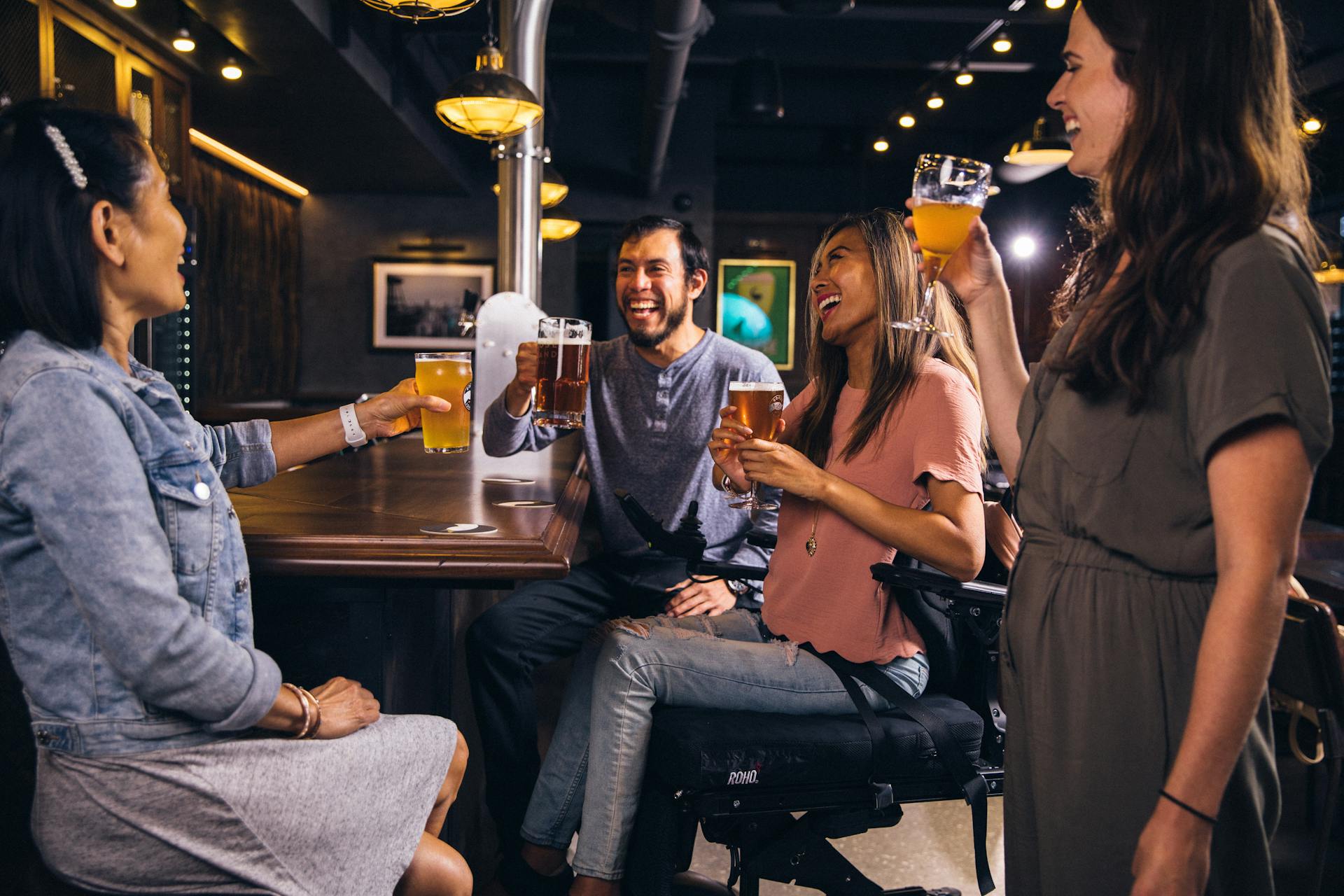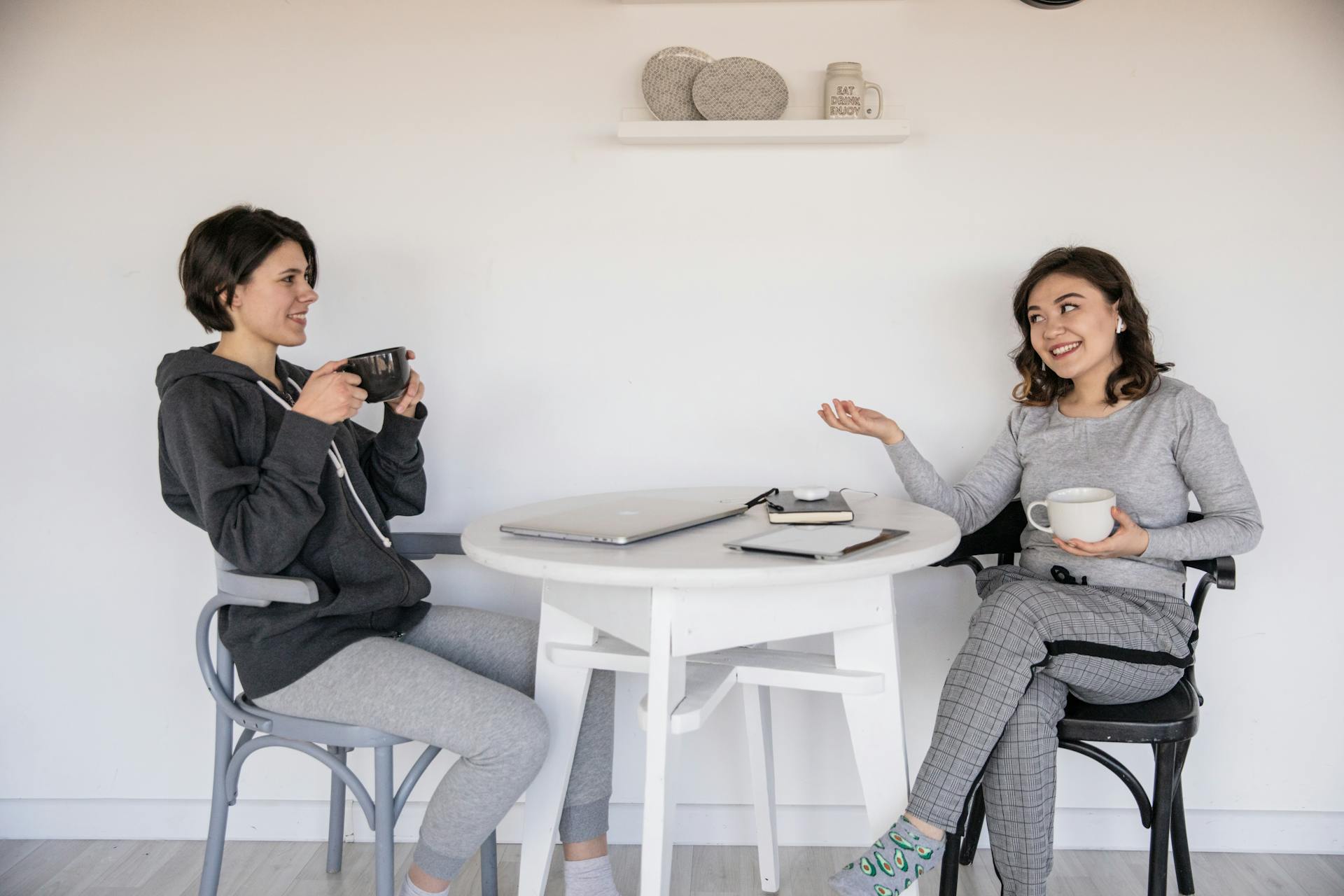Are you struggling to connect with others? Discover simple life hacks from real people that will instantly boost your likability. From mirroring body language to making others feel valued, these tips will help you build genuine connections and leave a lasting positive impression!
Whether you’re an introvert or an extrovert, we’ve all struggled with awkward social interactions at some point. You know, the type where you walk away feeling embarrassed and ask yourself what you could’ve done differently.

A woman hiding her face | Source: Pexels
For the answer, look at these genius life hacks compiled from across the internet to help you be someone others love to spend time with.
The Power of Positive Gossip
Quora user Charissa Enget shared a personal story illustrating the power of speaking positively about people behind their backs.
She recounts her relationship with a woman in college, who she calls Nicole. Charissa found Nicole extremely annoying. Even though she couldn’t pinpoint exactly why this woman bugged her, simply being around Nicole was enough to put Charissa in a bad mood.

An angry woman | Source: Pexels
Until the day she confided in her best friend about how much she disliked Nicole and dreaded having to spend time around her. Charissa was shocked when her friend informed her that Nicole always spoke so highly of Charissa, praising her intelligence and good looks, and what a great engineer she was.
After this conversation, Charissa says she no longer finds Nicole so annoying.

A smiling woman | Source: Pexels
She even started to appreciate Nicole more, although they never developed a close friendship. As Charissa said, “It’s tough to dislike someone who speaks well of you behind your back.”
Takeaway: Want someone to like you? Start talking about them positively when they’re not around. Word will get back to them, and it’ll shift how they perceive you.
Mirror the Behaviors That Make You Feel Good
Quora user Mary Kutheis suggests considering what makes YOU feel good to determine if your interactions are helping others like themselves.

A woman smiling while texting | Source: Pexels
Mary suggested thinking about past conversations you enjoyed and considering what the other person did during these interactions to make you like yourself.
Perhaps the person you were speaking to made you laugh or was a great listener who showed true empathy for your problems. You may even recall a conversation where you felt the other person showed genuine interest in a topic that’s meaningful to you.

Two women having a conversation | Source: Unsplash
By reflecting on these experiences, you can improve the quality of your conversations by being a good listener for others, trying to make people laugh, and taking an interest in the things other people enjoy.
You may also recall conversations you didn’t enjoy and consider what made them unpleasant. Maybe you felt someone was overly critical of you during a conversation, or they complained a lot about a particular topic.

Two people ignoring each other | Source: Pexels
Thinking about these negative experiences could help you avoid making others feel bad when you’re speaking to them.
Takeaway: Reflect on what behaviors make you feel good during interactions and practice them with others. Conversely, be mindful of actions that leave you feeling down, like when someone’s attention seems divided. The key is to avoid these behaviors so you don’t inadvertently make others feel the same way.
Emotions Stick in Our Memories
Another Quora user, Howie Reith, bases his advice on the idea that our memories, both positive and negative, are based on the emotional significance of the event.

A group of people gathered together | Source: Pexels
To illustrate his point, he suggests thinking about any memory you have and asking yourself what stands out the most. There may be a list of things that come to mind, but often your most overriding impression of the memory will be based on the emotions you experienced at the time.
He also gives an example of how you might not recall many details about a time you went to dinner, such as who was with you or what you ate, but still have an overall unpleasant memory of the occasion.

Friends having dinner together | Source: Pexels
So, the trick here is to do what you can to ensure people enjoy spending time with you! To be a source of positive emotional experiences for others, Howie suggests the following:
Discuss subjects they enjoy to create a positive connection with those topics. If you know someone passionate about photography, ask them about their favorite type of photography, the latest camera gear they’re interested in, or a photographer they admire.
By showing genuine interest in their hobby, you create a positive association with the conversation.

A photographer in a sunflower field | Source: Pexels
Encourage them to recount their happy memories. During a conversation, if someone mentions a past vacation, prompt them to share more about it. You could say, “That trip sounds amazing! What was your favorite part of it?”
Encouraging them to revisit and talk about happy moments helps them relive those positive emotions, which they’ll then associate with you.

Two people having a conversation | Source: Pexels
Offer compliments, specifically highlighting the qualities they wish to be acknowledged for. If you know someone who has been working hard on a project or a skill, acknowledge their effort.
Complimenting them on something they care about not only boosts their confidence but also shows that you’re paying attention to what matters to them.

Two women having coffee | Source: Pexels
Bring a smile to their faces. Share a light-hearted joke or a funny story that’s appropriate for the situation. If they seem stressed, a simple, “Hey, do you want to hear something funny that happened to me today?” can lighten the mood.
Making someone smile or laugh, even briefly, can have a lasting positive effect on how they feel around you.

A woman smiling at her colleague | Source: Pexels
Participate in a shared activity that brings them joy, especially if it involves working as a team or conquering obstacles. If a friend loves hiking, suggest going on a hike together. The teamwork involved in navigating trails or reaching a summit creates a bonding experience.
Overcoming obstacles together, even small ones like finding the best route or helping each other over rough terrain strengthens your connection.

Two friends camping | Source: Pexels
Demonstrate your joyful emotions through non-verbal cues. Emotions are infectious! When you’re happy or excited about something, let it show through your body language. Smile genuinely, maintain an open and relaxed posture, and use enthusiastic gestures.
Your positive energy will naturally influence those around you, making them feel good in your presence.

A woman jumping for joy | Source: Pexels
Takeaway: Our memories are closely linked to emotions, and this connection influences how we feel about people. To be likable, aim to be someone who brings positive emotions into interactions. Whether through humor, shared experiences, or simply being a good listener, strive to leave people with positive feelings associated with you.
Now we’ve gotten some insight into what makes people like each other, here are some useful tips you can implement to ensure the time you spend around others leaves a smile on their faces.

A woman smiling | Source: Unsplash
Simple Tips for Everyday Interactions
Reddit user, Microfuzz, shared the following tips they use to navigate everyday interactions:
When someone shares something about their day, ask follow-up questions. People love to talk about themselves.
Give others the chance to teach you something. It boosts their confidence and makes them feel valued.
Help people feel comfortable around you by finding a balance between being relaxed and showing enthusiasm for things that matter to you. This creates an environment where others feel at ease and are more likely to engage positively.

An excited man | Source: Pexels
Actionable Tips to Enhance Your Likability
Adam Fayed shared these tips on Quora that are perfect if you’re looking for quick, actionable strategies to improve your social interactions:
Mirror the other person’s body language. If the person you’re speaking with is sitting with their legs crossed, you might subtly cross your legs as well. If they’re leaning slightly forward, you can mirror that by leaning in a bit too.
This creates a subconscious connection and signals that you’re in sync with them. Just be sure to do this naturally, as overly obvious mirroring can feel forced or awkward.

A woman smiling in a mirror | Source: Pexels
Maintain good eye contact. During a conversation, make it a point to look the person in the eyes when they are speaking to you. This shows that you’re engaged and interested in what they’re saying.
If maintaining eye contact feels intense, you can look at the space between their eyes instead; it creates the same effect without feeling overwhelming. Remember to balance eye contact with occasional breaks to avoid staring.

A woman’s eyes | Source: Unsplash
Smile genuinely. When greeting someone or during a conversation, smile warmly, especially when the other person says something positive or funny.
A genuine smile involves not just your mouth but also your eyes. It signals friendliness and makes the other person feel at ease. For example, when a colleague shares good news, smile and congratulate them, letting your happiness for them show.

A smiling woman | Source: Pexels
Speak less and listen more. In a conversation, aim to let the other person speak more than you do. Ask open-ended questions like, “How did that make you feel?” or “What happened next?” and then give them the space to respond fully.
When they finish speaking, instead of immediately jumping in with your thoughts, pause briefly to show you’re considering what they said. This approach helps you understand them better and makes them feel heard and valued.

A man cupping his ear to listen | Source: Pexels
Avoid divisive topics like politics and religion. If a conversation starts to veer toward a potentially divisive topic, gently steer it in a different direction.
For instance, if someone brings up a political issue, you could respond with, “I can see how that’s important to you. By the way, have you heard about [a neutral, interesting topic]?”
This way, you keep the conversation pleasant without diving into areas that could create tension or conflict.

Friends in a bar | Source: Pexels
Be agreeable and open-minded. When someone expresses an opinion, even if you don’t entirely agree, respond in a way that shows you respect their perspective. You could say, “That’s an interesting point. I hadn’t thought about it that way before.”
This approach helps keep the conversation positive and shows that you’re open to different viewpoints, making others feel comfortable sharing their thoughts with you.

Two women having a chat | Source: Pexels
Make people feel important by valuing their opinions. When discussing a decision or seeking advice, actively ask for the other person’s opinion. For instance, you could say, “I’m trying to decide between these two options—what do you think would work best?”
Then, listen attentively to their response and acknowledge their input. By doing so, you make them feel valued and respected, which strengthens your relationship.

Women having a discussion | Source: Pexels
Build trust by asking for small favors, like watching your belongings for a moment. If you’re at a café and need to step away for a moment, you might ask the person you’re with, “Would you mind keeping an eye on my bag for a second?”
This simple request shows that you trust them, which in turn often makes them trust you more. It’s a subtle but effective way to build rapport and mutual trust in a relationship.

People in a cafe | Source: Pexels
And here’s a final tip from Reddit user, SnowHesher: The Benjamin Franklin Effect. If you want someone to like you, ask them to do you a favor. Psychologically, they’ll start to believe they like you because they’re helping you out, which will reinforce positive feelings toward you.
Do you have any tips to share about making friends or building genuine connections with others?



